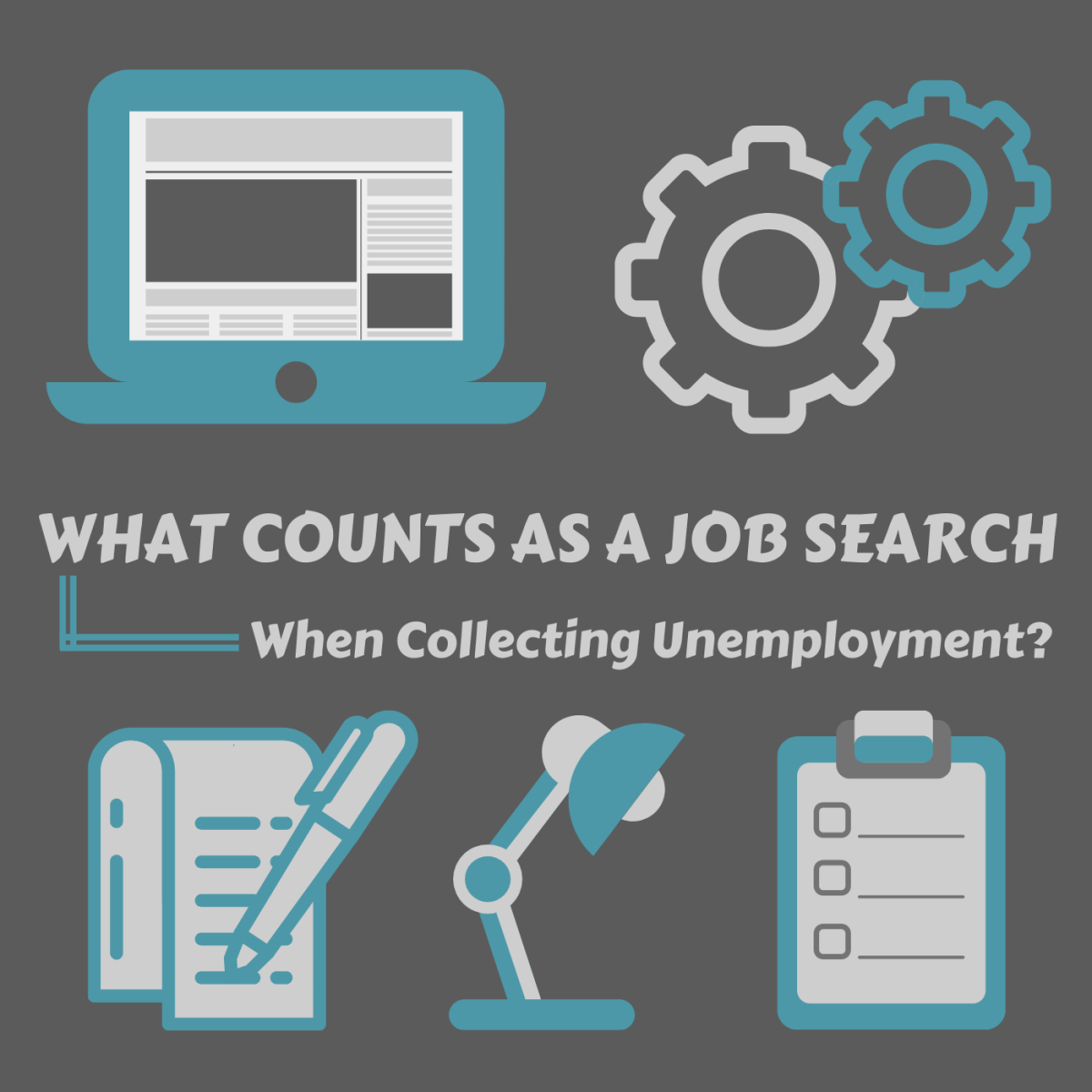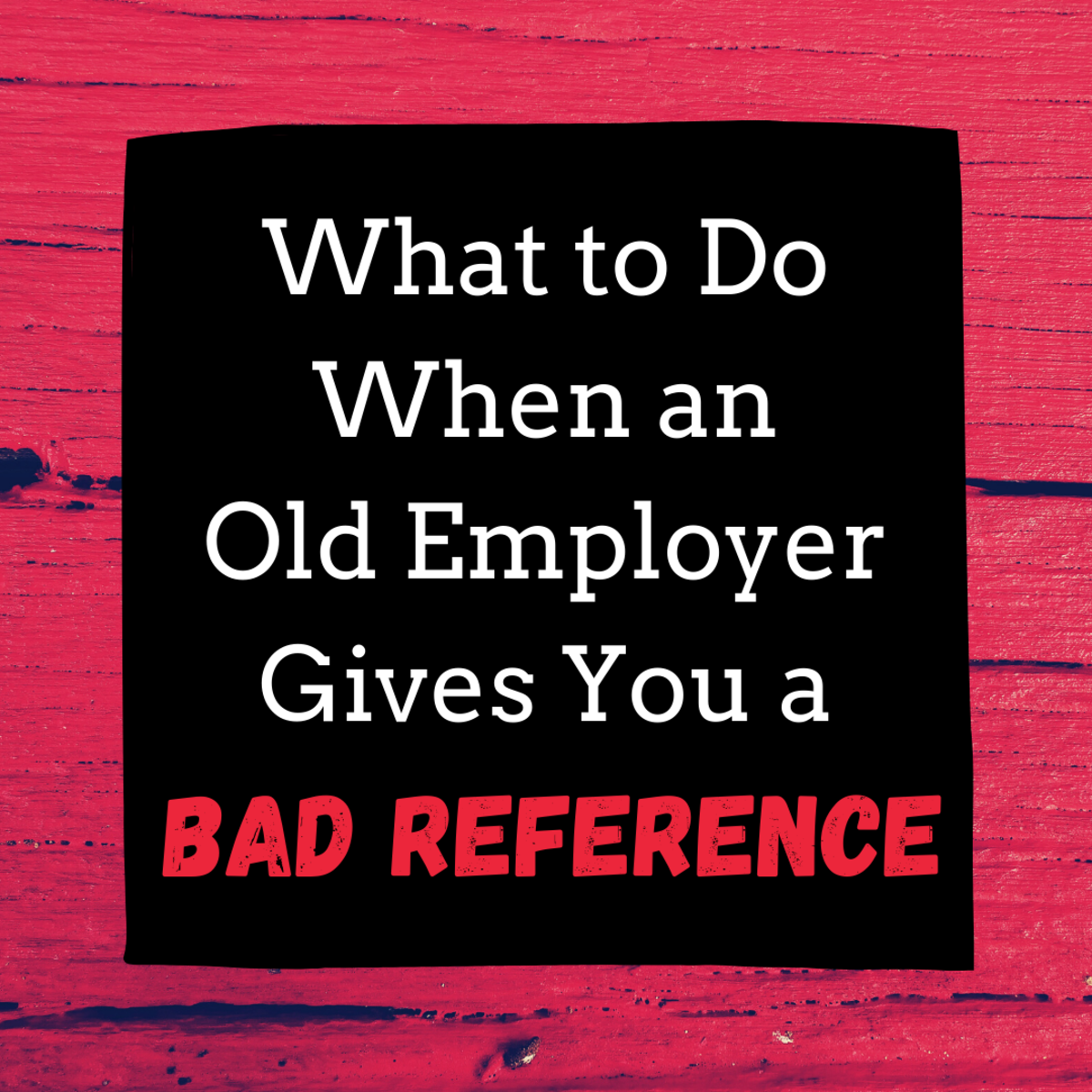Can’t Find a Job? How to Find Work by Job Networking and Referrals
There are many benefits to social job networking, including building references, getting referrals, and receiving letters of recommendation. Learn how to build a strong, job network and take effective advantage of that network to suite your job search needs. Use a contact network sheet to keep track of your job search networking contacts.
Asking for job advice from your social contacts in your job search efforts can be tricky. Follow the job search tips provided in this article for a smooth conversation on that topic. Also, view an example of a “References” sheet and a letter of recommendation. Do you lack references and are seeking work? Learn how to become popular in the business industry and gain assets for your job search.
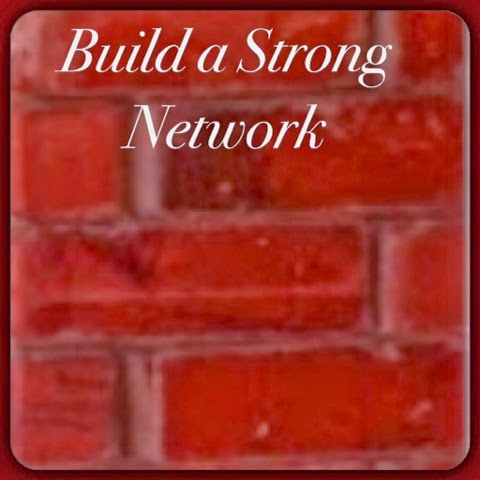
What is Job Networking?
Job Networking Defined
Job Networking is a method of interacting or engaging in communication with others in an effort to gain mutual support in a job or in a job search endeavor. The ways in which this is accomplished can vary from face-to-face job network communication to social job networking on the Internet.
Personal versus Professional Networking
For example, a personal social networking website online that is very popular today is Facebook. Most people use it for personal reasons, but some include business network contacts as well. A business network that was created for professional purposes rather than personal ones is called Linked-in.
Job Networking Online
The Internet is a proven method today of professional communication for job networking. Use technology tools to communicate, to find job openings, follow business trends, and explore company cultures through websites, blogs, Linked-in, Facebook, and Twitter. This new method of social networking has moved face-to-face job networking to online job networking on your home computer, which can often be faster and more convenient.
Growth of a Job Network
Job networking can be used to find hidden resources and opportunities. It allows you to meet new people, gain job advice, learn new job tips, obtain job leads, and expand your network by befriending the friends of your friends. It greatly expands your career opportunities.

Meetup
ClassMates
What are the Benefits of Business and Social Networking?
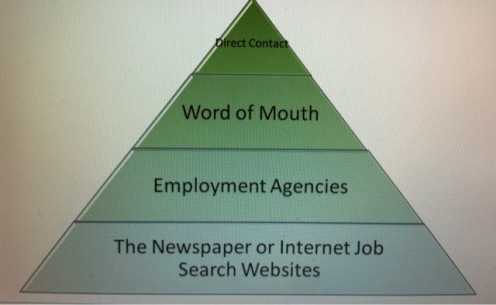
How Do Most People Find Work?
So now that job networking has been defined, let’s reflect on the benefits of participating in job networking and how it can help you find work. The majority of employees obtain their job through networking. This is why networks are such a crucial element in a job search plan.
Jobs that are advertised online or in the newspaper have a very fierce competition. That is why 60% of new workers who obtained their jobs say it was because they either had a contact in the company or knew someone who knew a contact in the company.
In other words, the best way to find a job is through a phone call or meeting of a job networking contact. Using social media in a mass way, sending out a resume to many companies, or filling out many applications has a far lower success rate than using contacts in your industry.
The odds of finding a job:
- With a phone call is 1 in 5
- Using social media is 1 in 200
- Sending out a resume is 1 in 200
- Filling out an application is 1 in 300
Where Do Employers Find New Employees?
It is crucial to understand where employers look for potential employees in order to find the right job. Most employers find their new employees through internal networks, internal job postings, external job networks, career placement agencies, and the Internet, in that order.
The Endless Benefits of Having a Solid Social Network
Your social or business network can help you land a job through letters of recommendation, referrals, or serving as references. Your network can also provide support, job search tips, and job advice. Whether you are calling a reference, a mentor, or a potential employer, you have the opportunity to ask them if they know of a great contact that might help you or if they have an idea for your job search.
It is important to stay on good terms with your job network. Just think of the possibilities. Let’s say you have 50 contacts, each of whom has 50 contacts. That’s 2,550 contacts right there!
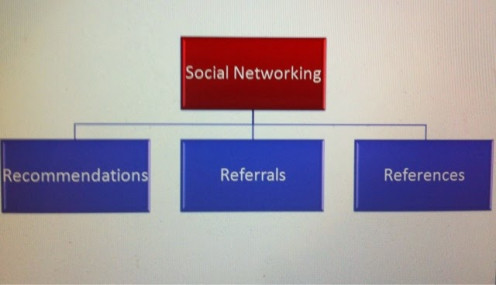
The Importance of Having an Industry-Related Network
Depending on your profession, you may need to have a large job network regardless of where you work. People in sales, for example, look more successful if they can show that they have a broad network of contacts, leads, or customers in their field. Some employers even encourage the use and practice of social media or networking online to expand their company’s networking reach and expertise.
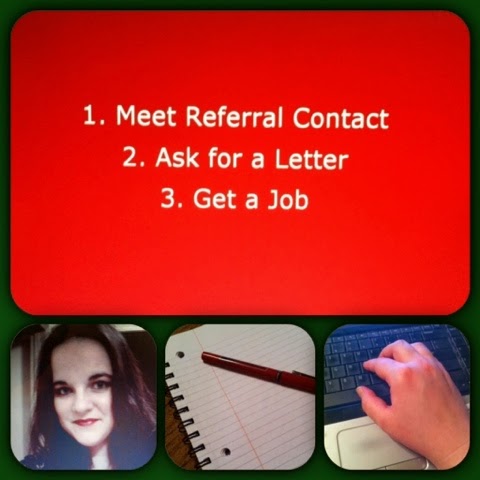
How to Build a Social or Business Network
Make a List of Contacts
Make a list of people you know who may be able to help you in your job search. List your friends and business associates. Do not discriminate based on what your network contact’s current occupation is, because they may still be able to be a character reference for you. Always ask people if they will be a reference or character witness before electing them to be one.
Meet Someone New
You may need to engage in informal communication with others at the store, pharmacy, or beach. Then you can lean the conversation towards your job loss dilemma. You might just meet a stranger that can lead you to the job of your dreams or help you in your job search.
Social Media Job Search

- School Counselors
- Sports League Members
Tell People You Are Looking For Work
Believe it or not some of the people you least expect can point you in the right direction if they know you are looking for work. For example, your hairstylist may not know the first thing about the business world, but he or she may have a client who is looking for someone just like you. Browse this list to see who might fit in your network.
- Friends
- Hairstylist
- Banker
- Associations You Have a Member At
- Parents in a PTA Group
- Any Support Group Members
- Clergymen
- Neighbors
- Co-workers
- College Classmates
- Insurance Agents
- Volunteer Group Members
- Industry Contacts
- Military Contacts
Remember: You can still make an impression online even if you cannot be physically seen. Watch your professional conduct!
Meeting Contacts through Online Job Networking
Be cautious of how you write when you are online, because your inflection, body language, and tone can often be obtained through written words. You want to make sure you are being professional. This includes doing a spell check before sending any messages to anyone in your job network.
Stay Organized with Your Network of Contacts
(1) An Excel Spreadsheet
Create an Excel sheet that lists the “Network Contact” and “How They Helped You.” Use the following template as a guide. This is often a fast way to organize your information, but it is not a tangible resource that you can carry around in your purse or back pocket.
Contact Network Sheet
Network Contact:
| Who They Referred Me To:
|
|---|---|
Example on how to use the sheet: Networking Contact = Jill Smith from the Unemployment Office; Who They Referred Me To = Lance Kaplan, General Manager, at the Dallas Wal-Mart, (405) 555-4938.
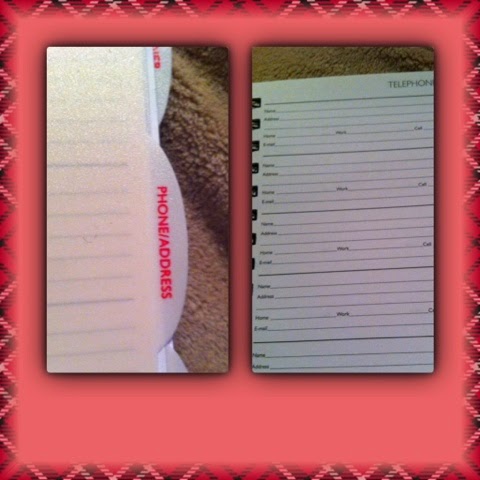
(2) An Address Book
Keep a planner with an address book section. In this section, include all of the pertinent information that comes on a business card. If you have a business card, tape it in the appropriate section with scotch tape to keep the contacts in your job network alphabetized and organized.
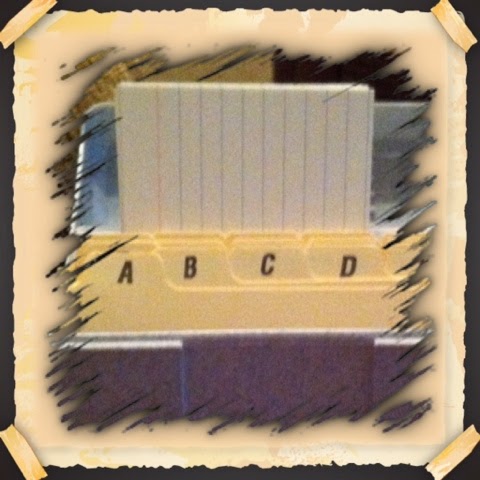
(3) An Index Flip Book or Rolodex
Start a rolodex or portfolio with index cards or flip cards in a rolodex. Tape business cards to index cards or flip cards with scotch tape, and then place it in the appropriate alphabetical place. Keep this rolodex near you while you do your job search, so that you can find the contacts in your job network when you need them.
Using Social Media in Your Job Search: Employers today often go online to review a job candidate’s content and profile. About 25% of employers today research job candidates via social networking sites in order to solidify their hiring decision. Some 10% of company hires come from LinkedIn and Twitter.
How to Make the Most of Your Business Network
You should now have an organized system for your networking contacts. However, having contacts and using them effectively are two separate functions. You might have 1,000 job contacts on a social media site like Linked-in, but if you don’t use them effectively, they are of no use to you in your job search.
First, learn from the career success of those in your job network. You can hit people up on Linked-in, and just ask for career advice. Many people feel honored to be asked for their wisdom and are happy to offer their opinion. Gain knowledge through curiosity.

Second, consider asking job professionals in your network for their opinion of your resume. If you do not have members of employment agencies in your professional network, consider adding them. They are usually eager to gain more job contacts.
Let these professionals know how and what you are doing in your job search. Later, tell them how they helped you, especially if they landed you a job. Make sure to thank them for their contribution, especially if they wrote a letter of recommendation for you.
Third, understand what is asked of a reference before you ask someone to be one for you. In the same manner, if you are uncertain about providing your previous employer’s information to your potential future employer, be sure to understand that there are limits to what they can legally ask.
There are only certain questions that future employers can ask your former employers. Know what they are before you add them to your reference sheet.
The only questions that future employers can technically ask your previous employers are:
1. Are they re-hirable?
|
2. Are they employable? Were they on time?
|
3. What were their dates of employment?
|
How to Ask For a Reference, Referral, or Letter of Recommendation
Now that you know ways to utilize your business networking contacts effectively, it’s time to understand the most important role they may play in your job search, the role of a reference, referral, or letter of recommendation.
Be careful when contacting others regarding your job search; do not use social media or job networking sites to cold email executives with whom you have never had prior contact. To speak to those in your network, employers at a job fair, or interviewers, use the following speech, improvised to suite your career objectives, in order to introduce yourself properly.
Greeting: Hello, my name is <your name>.
Experience: I am an experienced <your occupation> or I have <number> years of experience in the <industry you are in> industry.
Strengths: My strongest skills are in <skill set> and <skill set>.
Accomplishments: I have received recognition for <accomplishment>.
Area of Interest: I am interested in working in the field of <industry> or I am interested in expanding my expertise in <field of interest>.
This brief synopsis explains your skills and desired employment situation. Practice it a few times so it comes across naturally.
References
The Definition of References
References are positive people who know about your skills, abilities, and character. They can be professional or personal in nature. It is important that you chose people who will speak well of you. Try to picture what they will say about you when someone asks about your character. Be selective in your choices. Choose people who want to help you succeed in your job search.
Prepping Your References
When you make a list of references, make sure you have spoken to them first about the objectives of your job search. Let them know that they may be experiencing calls about your character, work ethics, or other work habits. It’s even a nice touch to contact your references and meet with them in person to discuss the possibility of using them.
Prepare them in advance, especially if they do not know much about your work history. Coach them on what to say and on what may be asked of them. Do not assume your reference will immediately recall your accomplishments or work style. Remind them in what capacity they have worked or known you. Keep in periodic contact with your references.
Who to Include As References
Try to include at least three professional references and two personal ones on your “References” sheet. Consider the following people to use as references.
Professional References
Group leader
|
Former co-worker
|
Member of your volunteer group
|
Industry contacts
|
Previous employers
|
Military contacts
|
Member of a business association you belong to
|
If after about six months, you are still job searching and have extensively used these people as references, politely send them a note letting them know you are still looking and asking if they mind continuing to be your reference or if they would prefer to be removed from the reference list for any reason. Tell them there are no hard feelings, if so, and that you understand and appreciate what they have done for you.
An Example of a Reference Sheet
To show off references, on a separate page, list three to five business references along with two to three personal references that you have known for a long time. Do not include relatives.
With each contact, add their address and phone number. Include their title, where they work, and if relevant, their relationship to you.
Offer your references, along with a resume, to an interviewer during the interview whether they ask for it or not. This shows that you are organized and professional.
Here is an Example About How to Complete a References Sheet:
(Center)
Your Name
Address
Phone Number
Email Address
(Center, bold, italics, and upper case)
REFERENCES
(Far left, bold, and upper case)
PROFESSIONAL REFERENCES
(Left indented with a blank row between each reference)
Jerry Still, Manager
Ken Company
555 North 23rd Street
Dallas, TX 12345
(404) 555-4873
jerry@email.com
(Far left, bold, and upper case)
PERSONAL REFERENCES
(Left indented with a blank row between each reference)
Janice Smith, Owner
Smith’s Shoes
3232 East Park Ave
Santo, TX 87888
(323) 555-4343
jansmith@email.com
Are you a reference or are you seeking one?
Have you served as a reference or asked for a reference from someone before?
Recommendations
These are professional letters which praise your exemplary work as an employee or associate. You should have strong, solid letters of recommendation to present in an interview. Here are a few sources you may want to try:
- College Professors
- Coaches
- High School Teachers
- Old Bosses
- Mentors
- Group Leaders
- Co-workers
- Peers in a Professional Organization
- Church Leaders
An Example of a Letter of Recommendation
- How to Write a Letter of Recommendation (with Sample Letters)
If you've not written a letter of recommendation before, the process can seem a bit intimidating. Fortunately, all letters of recommendation involve common elements that you can master easily. Read on to learn how.
Showing Your Recommendations in Your Resume or Portfolio
Another way to approach the requirement of a letter of recommendation is presenting proof of achievement, employee of the month certifications, or other employment or academic awards. Don’t take a huge trophy in to a job interview, but do show what you can offer through your accomplishments.
Many employers are impressed with those who are members of a professional organization. Some professional organizations that you could be a member of are the Chamber of Commerce, the Society for Technical Communications, the American Bankers’ Association, the Board of Realtor’s Membership Association, and the American Nurses’ Association.
What to Do If You Don’t Have a Network
There may be people in your social network that you do not think would be an applicable network contact for your References sheet. However, if you don’t have strong business contacts, you may have to broaden your horizon. Most of your contacts can still vouch for your work ethics and conduct based on your behavior.
For example, if a friend is a reference, she may need to say, “I never worked with her, but I know she was passionate about her last job and was always on time.” They will be making important character statements about you. If it’s been a while since you were in contact with them, remind them in what capacity they have worked with or known you.

- Sports League Members
- Relatives
- Insurance Agents
- Blog Friends from the Internet
Here are a few ideas of people you might want to use for your references:
- Dry Cleaners
- Church Members
- Preachers
- School Counselors
- Job Association Members
- Teachers
- Linked-in Contacts
- Representatives at Employment Agencies
- Friends
- Hair Stylists
- Craft Club Members or the Group Leader
- Bankers
- Veteran Groups
- Neighbors
- Friends of Your Relatives
- Pharmacists
- College Classmates
Keep in mind that since their relationship with you was more social than professional, you need to coach them well. Explain in detail what will be asked of them and what they should say. A better way to approach it would be to following this progression:
Step One: Ask a personal contact if they will be a reference for you.
Step Two: Ask them what they remember about you or what they will say about you.
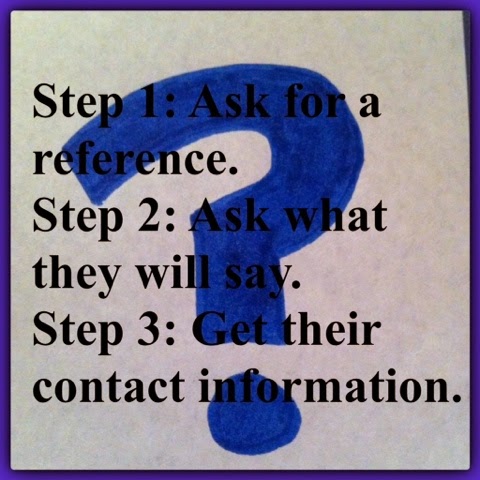
(a) If they already have in mind what to say to a potential employer, make sure their information is accurate and consistent with the image you wish to portray for particular jobs.
For example, if you were previously an Accountant, a profession that deals mostly with number crunching and desk work, you wouldn’t be considered to be very social. If you now wish to have a Sales Marketing position, which deals with customers and co-workers, then for your character reference, you would want to come across as a team player and a social person rather than a desk jockey.
Explain this to your reference. Tell them your goals, aspirations, and ambitions. If you need to, tell them the characteristics you have that have that make you perfect for the field you are aiming for.
(b) If the person does not know what to say if they were called, coach them. Discuss your career goals, characteristics, previous work history, accomplishments, and how you could be a valuable asset for a company. Let them know your attributes, so that they can convey them to your future employer.
Step Three: Make sure you have all of their contact information and ensure that you have their permission to use them as a contact. If you are still searching for a job in six months, call them again to make sure they do not mind continuing to be your reference.
Do you have a strong list of references?
Job Tips about Using References
Always have back up references in mind. If one of your main references bows out, you will need to replace him or her. Also, employers often want to get a hold of all your references and cannot reach one of them. In this case, they may ask you to provide an alternate credible person so that they can contact that person.
On your references sheet, don’t put a relative, anyone who doesn’t know much about you, or anyone who might say something bad about you. Also, do not include your spouse or your boyfriend on your references sheet. You never know what day you may be fighting, and they might surprise you, and say something rotten to a potential employer you really wanted to get an interview with.
Conclusion
It is crucial to have a large network of friends and associates. They might turn out to be references, sources used to find a new job (referrals), or even your new employers. Job Networking is a great way to tap hidden or unknown opportunities.
Utilize your network of contacts to provide you advice and information, give job leads, and introduce you to other people, thus expanding your network further. Expand your employment and career opportunities. Do not discount the contribution of your networking partners.
Job Networking Tips
Disclosure
Pictures: The pictures used in this article were taken by Michele Jones.
Videos: The provided videos were from youtube.com.
HubPages: Feel free to ask a direct question regarding this article in the comment section. If you found this article to be useful or interesting, please:
- Rate it
- Share it
- Leave a Comment or Question.
Thanks for stopping by!




